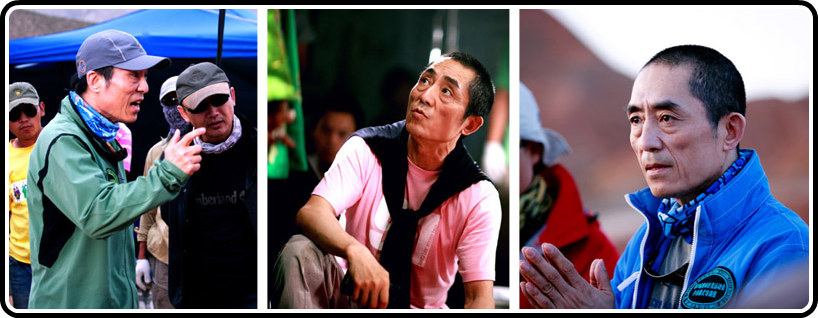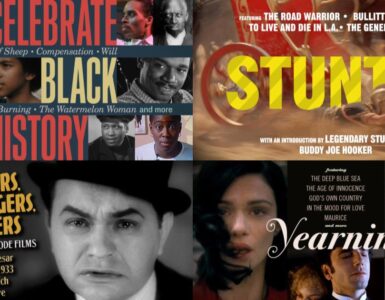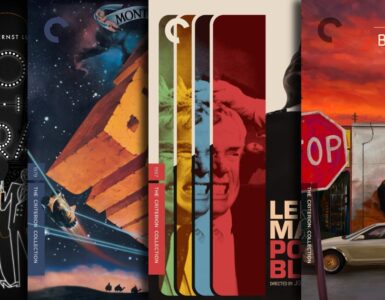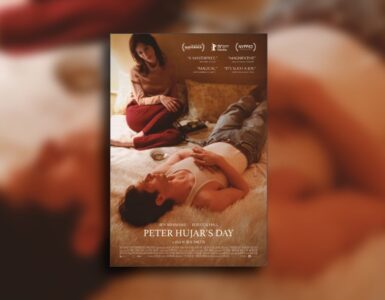A Woman, A Gun and a Noodle Shop, the new film by Zhang Yimou, is an exciting and unique take on the 1984 Coen Bros. film Blood Simple. We here at Criterion Cast got to chat with Zhang Yimou for an exclusive conversation about the film.
James McCormick: How are you doing today?
Zhang Yimou: Not bad. (laughs)
JM: First off I wanted to let you know I just saw the film, this past Monday. I can’t stop thinking about it. It will not leave my mind. Which is a good thing, of course.
ZY: Thank you so much.
JM: I wanted to ask you, while watching it, I knew I was in for something different and special. What made you pick a Coen Bros. movie to remake in the first place, let alone Blood Simple which was their first film, which I found to be a very interesting choice.
ZY: So actually, I first saw Blood Simple about 20 years ago at a film festival. It was the Cannes Film Festival that I saw the film and it really left a deep impression on me. Even though at the time I saw it without any subtitles. I don’t speak English and there weren’t any Chinese subtitles. So there were certain elements that perhaps I wasn’t able to get all the nuances but the visuals left an incredible impact on me. And when I was considering doing a new film, that came to mind: a remake of Blood Simple. And because it’s an older film, we thought that the purchasing of copyrights, the copyright to do a remake wouldn’t be quite as expensive and might actually be something we could tackle. And so that also a had one element to it. Why did it stood out of all their films? Maybe it also comes down to the fact that not only was it their first film that 20 years ago when I first saw it. So maybe there was a kind of faith from that initial moment when I saw that film til today. Sometimes these things are hard to say. But there was something about that really grabbed me. As for what it was that really grabbed me, I think that it operates on several levels but at the core is this element of the misunderstanding or the mistake in the film. It’s that central action where you have the boyfriend thinks that his girlfriend has killed her husband which isn’t the case. But that misunderstanding is an action that sets into place this whole linkage of further actions that carry the plot, creates suspense, creates mystery, and really makes the whole narrative of the plot operate. And I thought that misunderstanding was really a fascinating aspect of the film and I wanted to not only hone into that but really blow it up. To magnify it, to take it into a whole new direction. And so I had everybody involved in this web of mistakes and misunderstanding. I also wanted to restage it by setting it in a noodle house which would also kind of change the original environment which is quite broad and really concentrated in one space and one time.
JM: You definitely did. You basically took the original idea and you went into your own direction which I loved to death. I wanted to ask, I don’t know if it was just me but while watching the film I actually saw more of a Marx Bros. feel. It was a very dark version of a Marx Bros. film but the whole web of lies and misunderstandings just had this great comedic undertone and the character of Li, played by Xiao Shen-Yang , he was fantastic. I could see he’s from a comedic background and playing a role that initially is comedic but also has a seriousness in it. How did you find him?
ZY: So with the Marx Bros that you mentioned, I have to admit I’m not really that familiar with their films. I just haven’t seen too much. But I can tell you about Xiao Shen-Yang, the actor you mentioned. He is basically known in China as one of the top comedic actors and he really just came out of nowhere and really came to the public’s attention last year during the Chinese New Year’s television annual event. Every year around February or March, during Chinese New Year, Chinese Central Television has this incredibly popular new year’s program, where they have all kinds of a variety show. All kinds of song, dance, actors, comedy. And he appeared on that, came out of nowhere and just became a real superstar, a household name throughout China. And so, that was his rise to celebrity. And he is quite known for his comedic skits that he does. Often two characters, they’re a little similar to the talk show format in the West. But it has more of a physicality to it, physical comedy. And he is an expert at that type of comedy in China and we thought that by having him in a role, it would really help add to the comic dimension of the film. He’s also, because he had this physical training, very skilled at flips and cartwheels and all of those other things that actors in that tradition do and so we wanted to incorporate some of that aspect there. And also just the over exaggerated facial expressions, that terrified look he sometimes has in the film. That’s something a normal actor just can’t do because they’re not trained in that kind of theatrical comedy. But it was something he could definitely do and that filled this absurdist comic tension to the film.
JM: I definitely saw that. Actually, do you know if the Coen Bros. have seen the film? Are they aware of this remake?
ZY: After we finished the initial post production, we actually had a rough cut of the film. So we burned a disc and we had out production company send it to the Coen Bros. And not long after receiving it, they actually sent us an email where they said they really enjoyed the film and never did they imagine that their original work, Blood Simple, could be adpated in such a creative, interesting, quirky, fun manner. They especially pointed out how much they enjoyed the buck-toothed noodlemaker character and what an ingenious interesting addition to the film he was.
JM: I’m glad they actually saw it, because when I saw it with the crowd I was in, the people just fell in love with the noodle shop itself. Especially the making of the noodles. I want to know, how did you even replicate that on film. It was mindblowing to see that. It was almost like seeing, in an American film, a fancy pizza pie contest. How did you even do that?
ZY: (laughs loudly) So actually that scene, a lot of it is indebted to Xiao Shen-Yang, the actor you mentioned and some of the other actors. In their typical skits that you’d see them perform on television, they often did a similar action with handkerchiefs, where they’d spin handkerchiefs on their hands and as we were adapting this screenplay I thought what would be really great if we could do something like that in a noodle shop and do that with flour and with the noodles. So that’s where it came from, the original skit and the handkerchiefs. But when we tried to adapt it with the noodles, I can tell you, it was very difficult. And we had to spend a lot of time practicing and rehearsing it. And so we had those three actors they actually spent more than two months practicing with the flour and the noodles to get this right. And so part of what happened also was that the elasticity and the texture of noodles wasn’t quite right to make it bigger and bigger in the way you see it taking place in the film. And so we had to hire a company to create this fake flour that would have the elasticity to make it bigger at the rate we wanted for the film, but also have the same texture and feeling of real noodle flour. And so what you see there is this kind of product this company created for us that really looks and feels and everything like real flour but it had the right texture so that we could use it in that sequence. It’s all real. There’s no computer, CGI effects that were added. That’s all the real actors doing this and they spent two months practicing. And in China as well, this is a quite unique sequence, and whenever that appeared in the film, audiences were all clapping, a hurrah for this sequence.
JM: Happily, we did it too in New York City. I was very happy about that. Also…(is told there’s 3 minutes left for the interview) Three minutes? Okay, actually considering there’s that amount of time left, I wanted to quickly talk about the character of Zhang, the police officer/detective. He’s a scary character and I know everybody was laughing it up until he would just do these extremely violent things. And he’s so meticulous. Actually he was scarier, to me, in some ways than the original private eye from Blood Simple, played by M. Emmet Walsh. I believe the actor, Honglei Sun, how did you find him? I know he’s very popular in China, but how did he get the role and did you give him any pointers or did he come up with this role by himself?
ZY: So the actor, Honglei Sun, is actually very famous in China. He’s one of the most famous of his generation, that younger generation, very popular. And we actually worked together once before more than a decade ago. So this is the second collaboration. The first time we worked together when he was actually still in film school, I discovered him for this earlier film of mine. Now after all these years we have this opportunity to work together again. So the design of that character was originally supposed to be someone with very few words. In fact, in the original screenplay he didn’t have a single line of dialogue. He was all action. Everything he did was physical and based on a movement. Then we thought that would have a very cool, powerful kind of sensibility that it would bring to the film. By having him not completely silent. But then we were a little worried (laughing) what if audiences think he’s a mute. That’s not quite what we wanted. So we said we had to give him at least a bit of dialogue, have him say a few things here and there, but at the same time we wanted to hold onto a principle that his actions were much more important than any dialogue in hindsight. Amongst those actions, one element we thought would be quite powerful, we’d have these sequences where he opens and closes doors. You always see him opening doors, closing doors, coming in and out, in and out. And there’s a kind of alegorical dimension to that action. It’s as if he’s coming from one world to another, travelling between these different planes, these different worlds. If you look at the whole film there’s probably several dozen times in which he’s opening and closing doors. He even said he never had to open and close so many doors in any film in his life. But we wanted to have that alegorical power. And as for his freedom in designing the role and my side role in that, he basically acted according to the screenplay. He had the screenplay and then he was able to develop his role with minor details according to the screenplay and he did have freedom to adapt it to his own style.
JM: Very good. Thank you for your time. I can’t wait to spread the word about this film.
ZY: Thank you very much. Have a great day James.






